Published
- 05:00 am

Multiply AI, the UK’s first fully-automated financial app provider, today announced the removal of its monthly subscription fee for Unity Mutual Lifetime ISA (LISA) customers – and launched a customer referral bonus scheme for easy access account holders.
First time homebuyers can now sign up for the LISA – offering a market-leading 1.5 percent interest rate – but without having to pay the monthly fee.
Instant access account holders will also earn a bonus rate of 0.5 percent on savings of up to £2,000. They can top that up by an extra 0.5 percent for 6 months each time they invite a friend to Multiply.
This is good news for first time buyers who need to save up a deposit of £59,000 on average – an increase of £12,000 on the amount they would have needed a year ago – and as average house prices hit a record high of £256,606 in March, according to recent Halifax research.
Vivek Madlani, CEO of Multiply AI, said: “We are passionate about giving everybody the opportunity to save for their first home. That is why we decided to remove our monthly LISA subscription fee entirely and offer a bonus rate on instant access savings.”
Through its partnership with Unity Mutual, the company launched the first LISA where the rate is guaranteed for 12 months in March this year. That means the 1.5 percent rate is guaranteed for the full 2021/2022 tax year until 5th April 2022, for both new customers and existing customers.
Most other LISA providers have dropped their rates recently and can do so again at any time with little warning, whereas Multiply AI customers get the guaranteed rate and can be confident of a good return with no surprises.
The closest competitors, Moneybox and The Nottingham, currently offer rates that are going down as low as 0.3 percent after the first year is over – putting the Unity Mutual LISA far ahead of other providers.
Customers opening the LISA through the Multiply app get a welcome bonus of £20 which increases to £25 when the 25 percent government bonus is added.
Related News
- 02:00 am
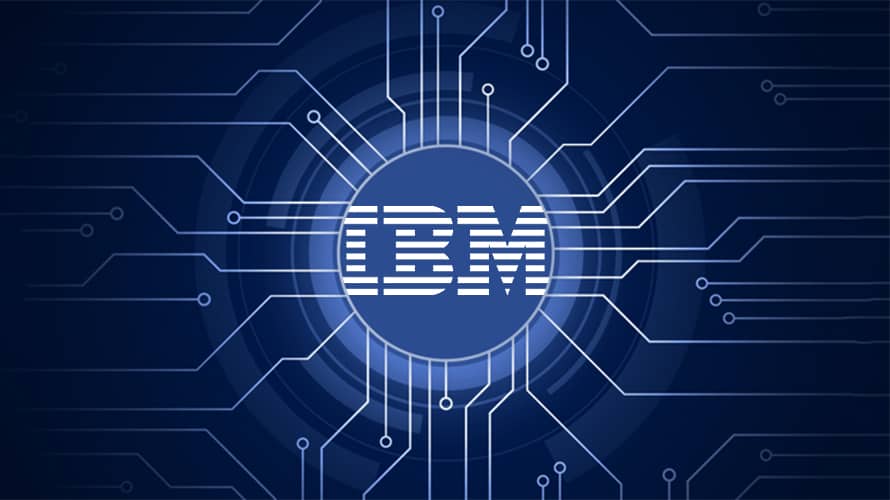
IBM (NYSE: IBM) announces advances in artificial intelligence (AI), hybrid cloud, and quantum computing at the company's Think conference at 12:00 p.m. ET today. The innovations highlight IBM's role in helping its clients and partners accelerate their digital transformations, return to work smarter, and build strategic ecosystems that can drive better business outcomes.
"We will look back on this year and last as the moment the world entered the digital century in full force," said IBM Chairman and CEO Arvind Krishna. "In the same way that we electrified factories and machines in the past century, we will use hybrid cloud to infuse AI into software and systems in the 21st century. And one thing is certain: this is a future that must be built on a foundation of deep industry collaboration. No one understands this better than IBM, which is one of the reasons we are boosting investment in our partner ecosystem. Also at Think 2021, we are unveiling our latest hybrid cloud and AI innovations – the very technologies that serve as the building blocks of a new IT architecture for business."
IBM is all-in on hybrid cloud and AI because we understand that businesses need a clear and credible path to modernizing their mission-critical systems. A new IBM study on the adoption of AI for business reveals that the imperative to embed AI into business processes became more urgent during the pandemic. Of IT professionals surveyed, 43 percent said that their companies had accelerated their rollout of AI. And nearly half of global IT professionals surveyed said they evaluate AI providers in large part on their ability to automate processes. That is why IBM has invested heavily in building rich and powerful AI capabilities for business.
We are already helping thousands of clients across every industry transform their businesses with the power of our hybrid cloud and AI platform. The following innovations are designed to equip businesses for the next stage of their digital journeys.
New Capabilities Bring Data and AI Together
- AI to Help Automate How Customers Access, Unify and Manage Data Anywhere with Cloud Pak for Data: A breakthrough capability in Cloud Pak for Data that uses AI to help customers get answers to distributed queries as much as 8x faster than previously and at nearly half the cost of other compared data warehouses. AutoSQL (Structured Query Language) automates how customers access, integrate and manage data without ever having to move it, regardless of where the data resides or how it is stored. AutoSQL solves one of the most critical pain points customers are facing as they look to reduce the complexity of curating data for AI and eliminate the high cost of moving data, while also uncovering hidden insights to make more accurate AI-driven predictions. With the launch of AutoSQL, IBM Cloud Pak for Data now includes the highest-performing cloud data warehouse on the market (based on our benchmarking study) that can run seamlessly across any hybrid multi-cloud environment – including private clouds, on-premises and any public cloud. AutoSQL will be one of several new technologies woven into a new data fabric in the Cloud Pak for Data. The new intelligent data fabric will automate complex data management tasks by using AI to discover, understand, access and protect distributed data across multiple environments, while unifying disparate data sources across a common data foundation. For more information, read the blog: 5 Things to Know about Cloud Pak for Data and New Data Fabric.
- Watson Orchestrate Helps Professionals Automate Work to Increase Productivity: Watson Orchestrate is a new interactive AI capability designed to increase the personal productivity of business professionals across sales, human resources, operations and more. Requiring no IT skills to use, Watson Orchestrate enables professionals to initiate work in a very human way, using collaboration tools such as Slack and email in natural language. It also connects to popular business applications like Salesforce, SAP and Workday®. Watson Orchestrate uses a powerful AI engine that automatically selects and sequences the pre-packaged skills needed to perform a task, and connects with applications, tools, data and history on-the-fly. This can help workers more quickly perform routine tasks, such as scheduling meetings or procuring approvals, or more mission-critical tasks, like preparing proposals or business plans. Watson Orchestrate is the latest AI-powered automation capability from IBM designed to help people reclaim a significant amount of their time to focus on more strategic tasks. It was developed by IBM Research and is now available in preview as part of the IBM Automation Cloud Paks and is expected to be generally available later this year. For more information, read the blog:5 Things to Know about Watson Orchestrate.
- Maximo Mobile Transforms the Work of Field Technicians: IBM has launched Maximo Mobile, an easy-to-deploy mobile platform with IBM's leading Maximo asset management solution at the core. Maximo Mobile is designed to transform the work of field technicians who maintain physical assets such as roads, bridges, production lines, power plants, refineries and more. A new, intuitive interface provides technicians with the right asset operational data at the right time. Even in the most remote locations, users can access Watson AI and in-depth organizational knowledge to easily solve complex issues. This powerful combination of AI, intelligent workflows, remote human assistance and access to digital twins puts decades of industry experience directly into the hands of technicians for safer, more efficient operations. For more information, watch the video: Empowering the Technician of the Future with Maximo Mobile.
New AI Transforms How Companies Develop, Deploy and Operate IT and Modernize Applications
- Project CodeNet Dataset Advances AI's Understanding and Translation of Code: IBM Research is releasing Project CodeNet, a large-scale, opensource dataset comprised of 14 million code samples, 500 million lines of code and 55 programming languages, to enable AI's understanding and translation of code. Project CodeNet is currently the largest, most differentiated dataset in its class and addresses three main use cases in coding today: code search (automatically translating one code into another, including legacy languages like COBOL); code similarity (identifying overlaps and similarities among different codes); and code constraints (customizing constraints based on a developer's specific needs and parameters). IBM believes Project CodeNet will serve as a valuable benchmark dataset for source-to-source translation and transitioning legacy codebases to modern code languages, helping businesses speed up their application of AI. For more information, read the blog:Kickstarting AI for Code: Introducing Project CodeNet.
- Mono2Micro Helps Take the Pain Out of Cloud Migration: IBM has added a new capability into WebSphere Hybrid Edition that enables enterprises to optimize and modernize their applications for hybrid cloud. IBM Mono2Micro uses AI developed by IBM Research to analyze large enterprise applications and provide recommendations on how to best adapt them for the move to cloud. It can simplify and speed up an error-prone process, which can reduce costs and maximize ROI. IBM Mono2Micro is one of IBM's suite of AI-powered products and services that can make it faster to migrate to the cloud. For more information, read the blog: IBM Mono2Micro: Three Things You Need to Know.
Leading Brands Adopt IBM Hybrid Cloud and AI Solutions
- IBM Watson Assistant Fuels COVID Response for CVS Health: IBM is collaborating with leading diversified health services company, CVS Health to help the national health care company handle a tenfold spike in call volume as the US rolls out its Covid-19 vaccination program. IBM Global Business Services (GBS) and CVS Health developed and delivered a customer care solution using IBM Watson Assistant on IBM Public Cloud in just four weeks. Infusing AI and natural language processing into the critical workflow of its telephonic customer care system, CVS Health has been able to quickly and accurately respond to a range of questions on COVID-19 from tests, to vaccines, symptoms, proof of vaccination, cost and more, freeing up human agents to handle the most complex requests. As government guidance has evolved, the team's rapid updates have enabled the virtual agent to customize responses based on vaccine status across all 50 US states. Since launching in early January, the virtual voice assistant has handled millions of calls –a majority without human assistance –and cut call length down significantly.
- EY and IBM create Financial Services Center of Excellence for Hybrid Cloud: EY and IBM have established a Center of Excellence that offers new open hybrid cloud solutions built with Red Hat OpenShift for the IBM Cloud for Financial Services. The solutions will be centered on regulatory compliance, digital trust and security, leveraging IBM technology and EY experience working with financial institutions to drive digital transformation and accelerate cloud adoption. They will be designed to address the specific and evolving requirements of financial services organizations as they transition to the cloud and transform business processes. IBM Cloud for Financial Services incorporates regulatory and compliance standards and offers a highly secure environment for financial services institutions to transact with their technology partners and customers. For more information, read the release from EY: EY and IBM announce the creation of Center of Excellence to help accelerate digital transformation for financial services institutions.
Continued Investments in IBM's Partner Ecosystem
- New Benefits to Drive Partner Success: As part of a $1 billion investment to support its partner ecosystem, IBM unveiled new competencies, skills training, and benefits to ensure its partners succeed in an increasingly competitive market. For example, IBM has created a new competency framework to enable partners to demonstrate expertise, technical validation, and sales success in specialized areas such as hybrid cloud infrastructure, automation and security. IBM ecosystem partner Tata Consultancy Services (TCS) has already achieved competencies for building an industrial and manufacturing AI solution for data scientists and AI developers. To further its investment in ecosystem partners, IBM is also expanding availability of its Cloud Engagement Fund (CEF), to all partner types, whether they build on, service, or re/sell IBM technology. CEF provides investment through significant technical resources and cloud credits for partners to help migrate customer workloads to hybrid cloud environments. IBM's collaboration with Siemens Digital Industries Software is just one example of how the CEF is helping IBM partners scale. Through this joint initiative, Siemens will apply IBM's open hybrid cloud approach, built on Red Hat OpenShift, to extend the deployment flexibility of MindSphere, the industrial IoT-as-a-service solution from Siemens. For more information, read the blog: IBM Announces New Benefits to Drive Partner Success as Ecosystem Momentum Accelerates.
IBM Brings Quantum Computing One Step Closer to Everyday Use
- Qiskit Runtime Software Boosts Quantum Circuit Processing Speed by 120x: IBM is making it faster and easier for developers to use quantum software by introducing Qiskit Runtime. This software is containerized and hosted in the hybrid cloud, instead of running most of its code on the user's computer. Together with improvements in both the software and processor performance, this allows Qiskit Runtime to boost the speeds of quantum circuits, the building blocks of quantum algorithms, by 120 times. Qiskit, the IBM-developed open-source framework for quantum computing for a global community of developers, aims to make quantum computing accessible to all. By introducing Qiskit Runtime, IBM is enabling quantum systems to run complex calculations such as chemical modeling and financial risk analysis in hours, instead of several weeks. To show the power of the software, IBM recently demonstrated how the lithium hydride molecule (LiH) could be modeled on a quantum device in nine hours, when previously it took 45 days. This kind of improvement is key to scaling quantum computation for new use cases. For more information, read the blog: IBM Quantum Delivers 120x speedup of quantum workloads with Qiskit Runtime.
The announcements made during today's Think event come just days after IBM unveiled the world's first two nanometer chip which will enable faster, more efficient computing from the datacenter to the edge; Cloud Engine, a front-end platform that can help developers quickly deploy cloud-native applications without having to acquire new skills or configure complex code; Spectrum Fusion, a fully-containerized version of IBM's storage and data protection software designed to provide a streamlined way to discover data from across the enterprise; and IBM's alliance with Zscaler on Zero Trust where IBM Security Services combines the technology of Zscaler and the expertise of IBM to help clients adopt an end-to-end secure access service edge (SASE) approach, marrying authentication and permission to deliver security and privacy enhancements.
About IBM
IBM is a leading global hybrid cloud and AI, and business services provider. We help clients in more than 175 countries capitalize on insights from their data, streamline business processes, reduce costs and gain the competitive edge in their industries. Nearly 3,000 government and corporate entities in critical infrastructure areas such as financial services, telecommunications and healthcare rely on IBM's hybrid cloud platform and Red Hat OpenShift to affect their digital transformations quickly, efficiently and securely. IBM's breakthrough innovations in AI, quantum computing, industry-specific cloud solutions and business services deliver open and flexible options to our clients. All of this is backed by IBM's legendary commitment to trust, transparency, responsibility, inclusivity and service. Visit www.ibm.com for more information.
Related News
- 06:00 am

Commerzbank will be cooperating with the Franco-German financial services group ODDO BHF in the area of equities. As part of its Strategy 2024, Commerzbank has announced that it will be reviewing the possibility of cooperation with potential partners for the areas of equity trading and equity research. The aim is to become more efficient and to offer Corporate Clients an even better platform for placement of their shares. “This cooperation means that our capital markets business will be aligned even more consistently with the needs of our core clients. At the same time, this enables us to reduce costs and complexity without compromising on client service,” commented Chairman of the Board of Managing Directors Manfred Knof.
In the area of brokerage, ODDO BHF will support Commerzbank as an exclusive partner in future. “We have decided on ODDO BHF as a partner because this financial services group will contribute a high level of expertise in equity sales and trading for markets in Europe and North America. This will enable us to create a significantly greater bandwidth for our Corporate Clients in equity market transactions and we will be able to ensure even better placement for them,” explained Michael Kotzbauer, Member of the Board of Managing Directors responsible for Corporate Clients at Commerzbank. As a result of the platform encompassing wider geographical placement, Corporate Clients will now be able to extend their reach beyond the existing market-leading coverage for shares in the German-speaking regions of Germany, Austria and Switzerland. They will now also be able to benefit from strong coverage in other European countries and sectors with correspondingly greater selling power.
In this new arrangement, Commerzbank will remain the first contact partner for its Corporate Clients and one of the leading Equity Capital Markets (ECM) partners in the German-speaking regions.
Over the long term, Commerzbank will no longer offer institutional equity research in-house, i.e. research on shares for professional clients. This will be provided through ODDO BHF as the cooperation partner. Philippe Oddo, Managing Director and CEO of ODDO BHF: "We are very pleased to be working with one of the most important addresses in corporate banking in Germany. With this step, we are further expanding our position as a leading pan-European provider for our private, institutional and business customers."
The advisory competence for the equity business, Equity Capital Markets (ECM), remains an important cornerstone for corporate clients business at Commerzbank and customers will continue to have unrestricted access to this in future. The Bank will maintain its focus on the relevant requirements for its Corporate Clients in this area – also in relation to the Mittelstand – and it will also continue to be at their side for the issue of new equity capital, for example in initial public offerings, share placements, capital increases and convertible bonds.
Related News

Tal Doron
AVP Solution Architecture at GigaSpaces
With increasing competitive pressures from small and agile Fintech firms, financial institutions are scrambling to modernize legacy systems to become truly data-driven. However, see more
- 05:00 am

Etrading Software, the global provider of technology-led solutions designed for financial institutions and industry initiatives, has today announced the hire of Victoria Mcllroy, who will be joining the company in May, in a newly created role to focus on sales for Etrading Software and Artis Holding’s new loan technology partnership.
The loan product has recently been expanded to include LABS, a desktop tool designed to increase efficiency and automation of front-office loans workflows. The loan product WIC Platform, which automates large parts of the ‘Bids / Offers Wanted in Competition’ flows, will launch on 14 May for those clients which have signed up to the platform, bringing much needed efficiency and automation to the loans space.
With over five years experience trading buy and sell side, most recently at CVC Credit Partners in the performing loan space, and significant front-office sales and marketing expertise Victoria Mcllroy is joining Etrading Software in May to coincide with the WIC platform’s launch, helping to scale-up engagement with potential buyside and sellside customers.
Grant Wilson, Managing Partner said, “With her wealth of experience, we are delighted that Victoria is joining our loan technology business. She joins just as we expand the product range to help transform the almost entirely manual and voice-based loan sector. By using our technology product to create an automated, reliable user-friendly aggregation system which provides front office with individually tailored and targeted information, we hope to bring significant efficiencies to the market.”
Victoria Mcllroy, said, “I am excited to join the Etrading Software team and look forward to working with my network of buy and sell side loan traders. My first-hand experience managing the operational friction of BWIC’s has shown me clearly how execution could be improved from an efficiency, data, risk and compliance perspective. I strongly believe this new technology will be a very welcome development in capturing BWIC data and streamlining the process.”
Etrading Software designs, builds and operates technology solutions, framing, facilitating and navigating complex decision-making structures - from incubation to execution - that provide financial institutions and industry initiatives vendor-neutral technology solutions tailored to the needs of the OTC markets. From implementation to on-going operational support and system governance, such cases include Neptune Networks Ltd, the Derivatives Service Bureau (DSB) Ltd and most recently the Artis Holdings LABS and WIC platforms.
Related News
- 01:00 am
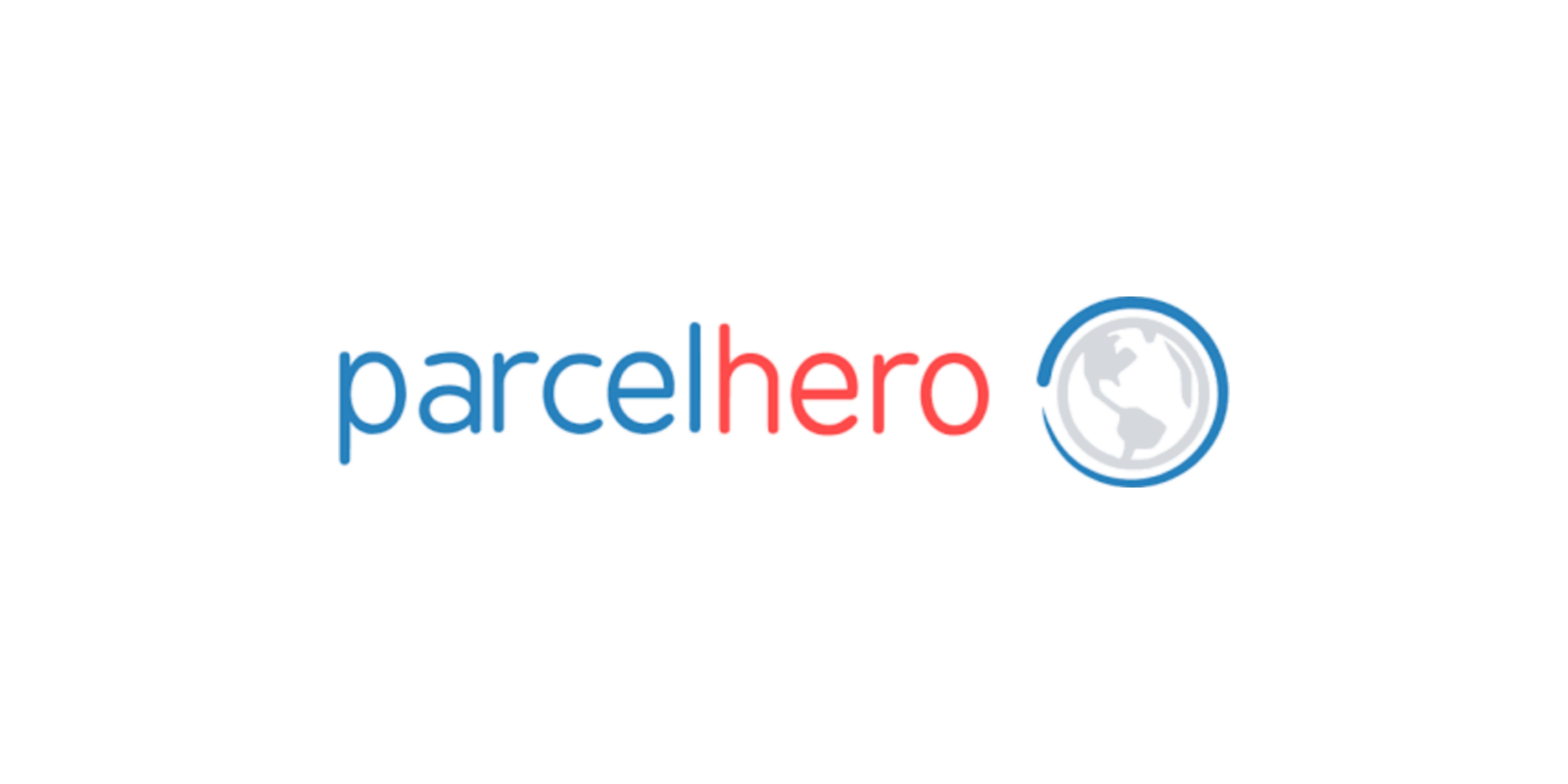
The SNP’s historic win in the Holyrood elections increases pressure for a second independence referendum that could see Scotland re-joining the EU. ParcelHero says ensuring the free flow of goods across English-Scottish borders must be part of any ‘Scexit’ plans from the very beginning.
The Scottish Nationalist Party’s (SNP) victory in the Scottish Parliamentary elections could pave the way for a second referendum, as pro-independence parties now hold the majority in Holyrood.
The international delivery specialist ParcelHero says that many Scottish nationalists believe the result clears a path not only for Scotland to become independent of the United Kingdom but also for it to re-join the European Union (EU). ParcelHero is urging that the free flow of goods at Scottish borders must be considered from the very beginning of any ‘Scexit’ planning process, to avoid the disaster of the Northern Ireland protocol.
ParcelHero’s Head of Consumer Research, David Jinks M.I.L.T., says: ‘The people of Scotland have voted for a pro-independence majority in Holyrood. Strictly speaking, it’s up to the UK Parliament at Westminster to decide on whether “Indyref2” can go ahead. However, Scotland’s First Minister, Nicola Sturgeon, told Prime Minister Boris Johnson on Sunday that a second referendum is “a matter of when – not if.”
‘Of course, ParcelHero is entirely neutral on such an important issue, but we do urge everyone involved in planning for independence – and, perhaps, eventually reuniting Scotland with the EU – to prioritise the free flow of goods at potential English-Scottish borders.
‘There was an abject failure by every side to thoroughly plan for the unrestricted passage of goods between Great Britain, Northern Ireland and the Republic of Ireland after the Brexit vote was passed. That failure now haunts us, with 44% of retailers and 31.5% of manufacturers reporting a collapse in the amount of goods they ship to Northern Ireland after the fiendishly complex Northern Ireland protocol was introduced.
‘It’s a situation that is still unravelling. The UK Government was forced to unilaterally abandon the introduction of the (legally required) second phase of the Northern Ireland protocol agreement planned for April, which would have resulted in increased certification and the end of waivers on customs declarations. This move was met with a furious reaction from the EU, which has taken Britain to court over the issue.
‘For now, FM Sturgeon has pledged to concentrate on the battle with Covid. However, she has also vowed to introduce a referendum bill in the first half of her new term in office. If the UK Government does not introduce a Section 30 order authorising a referendum, as it did back in 2014, the future of Scotland’s second referendum is likely to end up in the courts. No one wants to see a repeat of the legal tussles that resulted in the Northern Ireland protocol shambles.
‘Everyone planning for potential Scottish independence and, perhaps, its reunion with the EU needs to learn from the mistakes of Brexit and place the free, uninterrupted movement of goods at the top of their agenda. Indeed, as an enthusiastic EU member, an independent Scotland might rejuvenate trade between the EU and retailers and manufacturers from across the British Isles.
‘There are other, potential pitfalls to avoid when it comes to planning the delivery of mail and parcels to an independent Scotland. Currently, the UK Government subsidises charges for traditional mail deliveries to the Highlands and Islands. Holyrood’s planners will need to investigate what the impact of independence would be on the cost of traditional postie deliveries to remote and offshore locations. Couriers already include a surcharge for these deliveries.
‘ParcelHero will be proud to continue serving Scotland, no matter what its future holds. Anyone anxious to ensure Scotland avoids the Northern Ireland Brexit protocol trap should read ParcelHero’s new EU-UK e-commerce report at: https://www.parcelhero.com/research/brexit-study
Related News
- 07:00 am
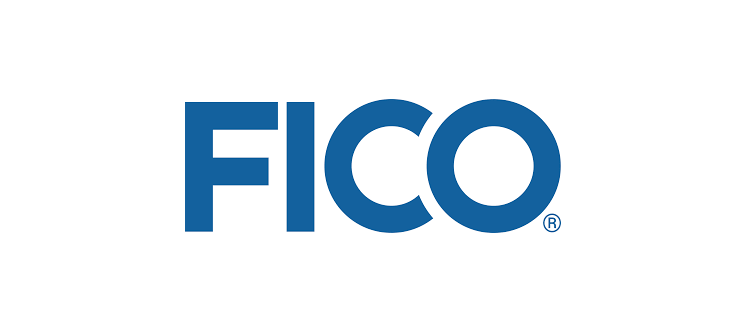
Highlights:
- AMAG Leasing AG improves staff productivity by 50 percent by automating credit granting decisions.
- Complex changes to business rules take days rather than two months.
- AMAG Leasing AG says return on investment will take just over six months.
- Project completed entirely remotely without a single physical meeting.
AMAG Leasing AG, the largest B2B and B2C captive car leasing company in Switzerland, has used the FICO® Platform to improve its credit granting process. With more than 150,000 leasing contracts under management, AMAG Leasing AG has been able to automate large parts of the decision-making procedure involved in striking new leases so that the company will be able to handle 50 percent more applications with the same workforce, thanks to the power of FICO® Decision Modeler.
The user-friendly nature of the platform allows credit managers to implement policies themselves in a matter of hours. More complex changes to business rules which used to take up to two months to apply can now be completed in less than a week.
More information: https://www.fico.com/en/platform
Before the implementation, the company had been experiencing issues meeting changes in the market quickly, as their incumbent rules engine required changes to be coded by the third-party supplier. This meant that adjustments took a very long time and AMAG Leasing AG was missing the flexibility to react to market conditions and customer expectations.
“Our strategic goal was to increase the digitalization and automation of our leasing process to give us an opportunity to meet our growth target of doubling our yearly application volume within the next few years,” said Martin Meyer, managing director at AMAG Leasing AG. “The move to a cloud-based decisioning platform has allowed us to scale our business, bring greater control in-house and plug us into leading technology that will get better through updates every year.”
By deploying the cloud-based FICO system, AMAG Leasing AG was able to create intelligent rules driven by data, allow leadership to analyze the portfolio and run what-if simulations and produce an audit trail that tracked the changes made.
“The solution from FICO has given us enormous flexibility to deliver an improved offering to our customers and partners,” added Meyer. “What was also impressive was that due to the pandemic, the project was run completely remotely between us and FICO and yet still came in on time and on budget, which demonstrates the close working relationship that developed between our two companies. We believe this project will deliver our ROI in just over 6 months.”
Using the capabilities on the FICO® Platform, AMAG Leasing AG was able to orchestrate multiple data sources to facilitate automated decisions, customer identification and bureau data retrieval for leasing applications.
The AMAG Leasing AG toolset includes FICO® Decision Modeler - Cloud Edition, FICO® Data Orchestrator and FICO® Decision Management Platform - Cloud Edition
“AMAG Leasing AG has accelerated their car leasing business with a transformational cloud deployment,” said Steve Hadaway, EMEA general manager for FICO. “I am particularly proud of the engagement taking place remotely with not a single physical meeting taking place. Not only did everybody show great flexibility and adaptation, AMAG Leasing AG also demonstrated great trust in us and as a result has very quickly optimized a critical business process.”
The FICO® Platform provides the ideal decisioning foundation companies need to successfully achieve digital transformation. It provides unprecedented insight into customers’ immediate and future needs by eliminating data silos and enabling interoperability between enterprise applications. FICO was named a leader by Forrester Research in The Forrester Wave™: Digital Decisioning Platforms, Q4 2020.
Related News
- 04:00 am

NTT Ltd., a world-leading global technology services provider, today launched its 2021 Global Threat Intelligence Report (GTIR), which reveals how hackers are taking advantage of the global destabilisation by targeting essential industries and common vulnerabilities from the shift to remote working.
Manufacturing, healthcare and finance industries all saw an increase in attacks globally (300%, 200% and 53% respectively), with these top three sectors accounting for a combined total of 62% of all attacks in 2020, up 11% from 2019. In the UK and Ireland, manufacturing was the most targeted industry, accounting for 80% of all attacks in 2020 - well above the global average of 22% - followed by the finance sector at 18%.
As organisations race to offer more virtual, remote access through the use of client portals, application-specific and web-application attacks spiked, accounting for 90% of all attacks in the UK and Ireland. This number was 23% higher than the global average (67%) and the highest rate of combined web attacks of any country analysed. Manufacturing bore the brunt of these attacks in the UK and Ireland, with 93% of all hostile activity targeted at the industry being web-application or application specific attacks.
The GTIR provides insights from NTT’s Cybersecurity Advisory that applies a maturity score of an industry’s security programme globally. A score of 1-2 shows comparitive immaturity in security controls, while 6 indicates a fully mature security operation, with organisations generally aspiring to reach 3-4. Concerningly, healthcare and manufacturing have relatively low global maturity scores of only 1.02 and 1.21, respectively. These have decreased from 2019’s global baseline of 1.12 and 1.32, while attack rates have significantly risen. Manufacturing has experienced a three-year decline in scores, most likely due to changes in the operating environment and the evolution of attacks. On the other hand, finance continued to demonstrate the highest maturity benchmark score for the third consecutive year, of 1.84, a 0.02 decrease on last year, however.
Kazu Yozawa, CEO of NTT’s Security division, says: “Last year we predicted a surge in targeted, opportunistic attacks and unfortunately, this has proven all-too-true. While these industries have done their best to maintain essential services throughout disruptive times, the fall in security standards when companies need them most is alarming. As services continue to move online and become increasingly digital to account for the new normal, organisations must be extra vigilant in upholding and maintaining best practices in their security.”
Malware sees a metamorphosis: Crypto malware surges while Trojans become more common
While malware is becoming more commoditised in features and functionality, it also became more diverse over the last year with the growth of multi-function malware. Cryptominers have replaced spyware as the most common malware in the world, but the use of certain variants of malware against specific industries continues to evolve. Globally, worms appeared most frequently in the finance and manufacturing sectors. Healthcare was impacted by remote access trojans, while the technology industry was targetted by ransomware. The global education sector was hit by cryptominers due to the popularisation of mining among students who exploit unprotected infrastructures.
The crypto-currency market is a prime example, with cryptominers accounting for a staggering 41% of all detected malware in 2020 globally. XMRig coinminer was the most common variant, representing nearly 82% of all global coinminer activity and 86% in the UK and Ireland specifically.
Mark Thomas, who leads NTT’s Global Threat Intelligence Center comments: “On one hand you have threat actors taking advantage of a global disaster, and on the other, cybercriminals capitalising on unprecedented market booms. The common thread throughout both of these situations is unpredictability and risk. Changes in operating models or adoption of new technologies present opportunities for malicious actors and with a surging crypto-currency market popular among inexperienced students; attacks were bound to happen. Now, as we enter a more stable phase of the pandemic, organisations and individuals alike must prioritise cybersecurity hygiene across all industries, including the supply chain.”
Further 2021 GTIR highlights:
- Globally, attacks against manufacturing increased from 7% last year to 22%; healthcare increased from 7% to 17%; and finance is up from 15% to 23%.
- Organisations in multiple industries globally saw attacks related to the COVID-19 vaccine and associated supply chains.
- COVID-19 cybercriminal opportunism intensified, with groups such as the Ozie Team, Agent Tesla and TA505, along with nation-state actors like Vicious Panda, Mustang Panda and Cozy Bear very active in 2020.
- Globally, the most commonly occurring forms of malware in 2020 were Miners: 41%; Trojans: 26%; Worms: 10%, Ransomware 6%.
- Cryptominers dominated activity in Europe, the Middle East and Africa (EMEA) and the Americas but were relatively rare in Asia Pacific (APAC).
- Ongoing fallout following the Schrems II decision invalidated the EU-US Privacy Shield and placed additional obligations on organisations transferring personal data from the EU to third countries.
- NTT’s research shows that 50% of organisations globally are prioritising securing their cloud services - making it the top cybersecurity focus over the next 18 months.
To learn more about how this year’s report offers organisations a robust framework to address today’s cyber threat landscape, follow the link to download the NTT Ltd. 2021 GTIR.
Related News
- 07:00 am
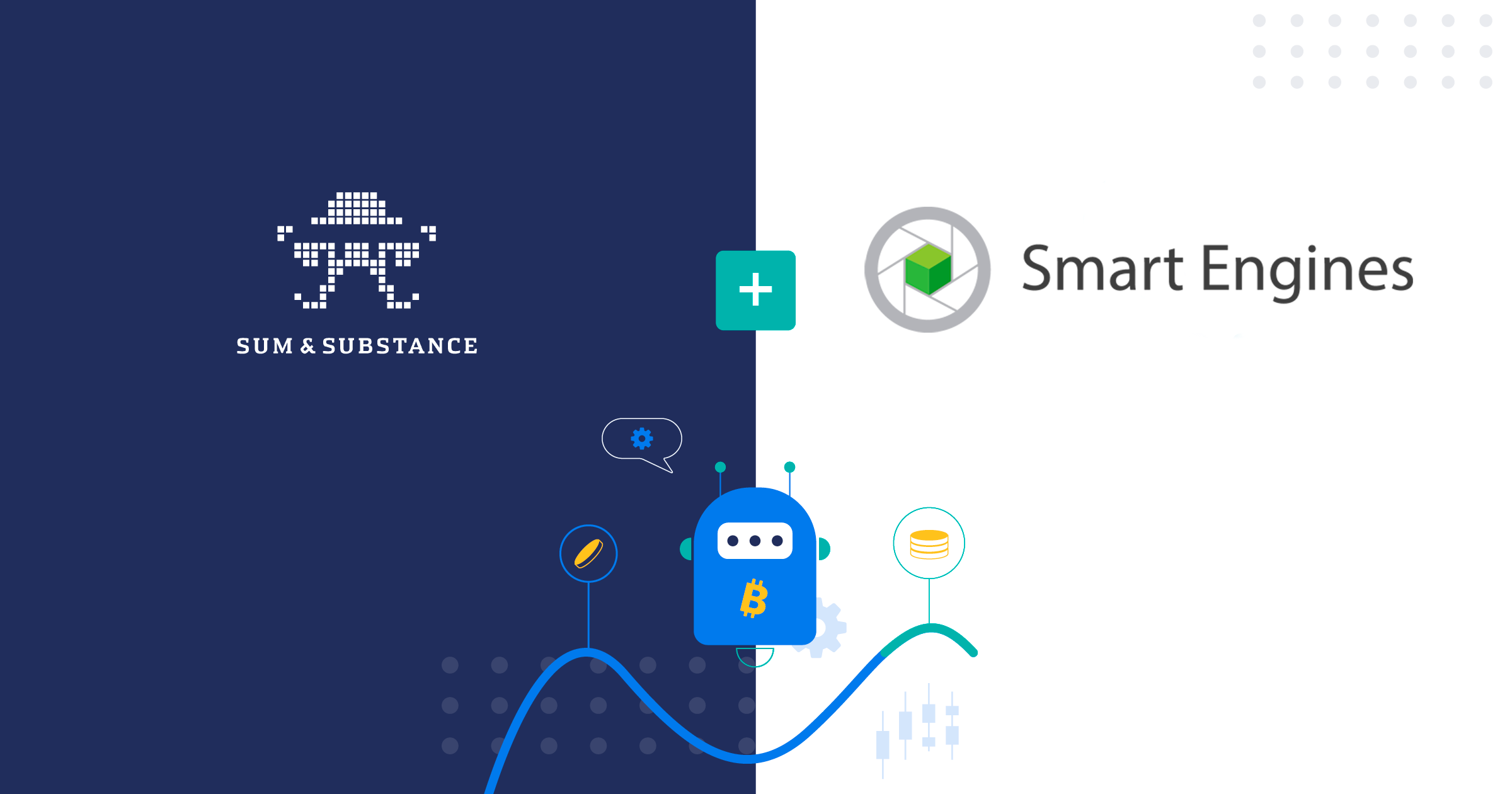
Sumsub, an identity verification platform that takes care of KYC/KYB/AML processes, has partnered with Smart Engines, a science-driven company that creates advanced data recognition systems for combatting the 30 most common types of ID forgery. The companies aim to prevent the use of forged IDs (such as dummies, photocopies, and monitor recaptures) in the 200+ countries and territories in which they operate—creating a reliable and secure digital KYC experience for customers worldwide.
Smart Engines’ ID scanning software uses AI to help Sumsub detect fraud with greater speed and accuracy. The software specifically protects against multiple forms of ID forgery, including dummies, photocopies, and monitor recaptures of documents. It features “Computation Document Forensic AI”, which enables accurate detection of optical variable devices (such as holographic security elements) and special visual security elements (monograms, ornaments, etc.). Document geometry checks and inspections within video streams and separate frames are also made possible by this technology.
Smart Engines also enables data cross-comparison and verification of document validity to detect forgery more accurately. This is possible through their original GreenOCR® technology, which empowers Sumsub to perform precise, automated recognition of 100,000 documents per hour. Crucially, this will allow Sumsub to minimize processor energy consumption due to Smart Engines’ framework of 8-bit and 4-bit pipelines for deep neural network inference.
The integration additionally enables Sumsub to process documents in more than 100 languages—including Arabic, Persian, Urdu, Japanese (Kanji, Katakana and Hiragana), Chinese, and Korean—with greater confidence. Smart Engines’ solution is GDPR and CCPA compliant, assuring that no user data is stored or processed through third-parties or cloud and internet-based servers.
The global optical character recognition (OCR) market is expected to grow 16.7% to USD 26.31 billion by 2028, according to the 2021 Optical Character Recognition Market Report . This will generate more investment into advancing recognition technology capabilities, including the development of intelligent character recognition (ICR) that extends OCR to contextual algorithms and intelligent document recognition (IDR) built on top of OCR. Smart Engines develops both ICR and IDR class solutions.
“Computation Document Forensic AI is an innovative fraud-prevention system by Smart Engines. Our new advanced solution tackles various issues such as digital forgery prevention or document forgery detection and fits perfectly with the technical tool kit of SumSub. This partnership is also a significant step forward in the fight against identity theft and we look forward to tackling more issues together.”—Dr. Vladimir Arlazarov, Founder and CEO of Smart Engines.
“Security and fraud-protection has been one of our main focuses during this fraud-stricken pandemic. Smart Engines’ computational document forensics and ID scanning will help us perform more sophisticated and accurate document authentication in under a second, delivering the excellent user experience and data safety that people deserve.”—Jacob Sever, Co-founder of Sumsub.
PwC reported that 47% of companies worldwide experienced fraud in the past two years—with losses totaling $42 billion. There were 4.8 million reports of fraud received by the US’s FTC in 2020, up 45% from 2019. Identity theft was the most common type of fraud, as schemes related to government COVID-19 relief, online shopping, and credit cards & payment accounts were rampant. The 2021 Identity Fraud Study reported even higher fraud losses ($56 billion) in 2020, with identity fraud scams accounting for $43 billion.
About Smart Engines
Smart Engines is a science-driven company with a focus on AI-related R&D at the forefront of document recognition, image processing, technical vision, machine learning, graph theory and optimization. The company builds cutting-edge, GDPR and CCPA-compliant recognition solutions that support public and private organizations worldwide by scanning ID cards, passports, driver's licenses, MRZ, bank cards, barcodes, business documents. In addition, Smart Engine's AI-driven mobile, desktop, and web products offer data extraction for customer onboarding, user identification, age verification and fraud detection.
The system supports more than 100 languages and more than 1600 ID types from 210 territories worldwide. Smart Engines’ technologies are used by companies such as Tinkoff Group, Citibank, Dukascopy Bank, Emirates NBD, Oman Arab Bank, ROSBANK, Raiffeisen Bank, Beeline, MTS, MegaFon, BioCollections Worldwide, Blockpass IDN, iDenfy, NEC, NNTC, Tessi, Travizory, Twino, VerifyMyAge, and others.
Smart Engines focuses on environmental concerns and is a member of the United Nations Global Compact Initiative.
Related News
- 09:00 am
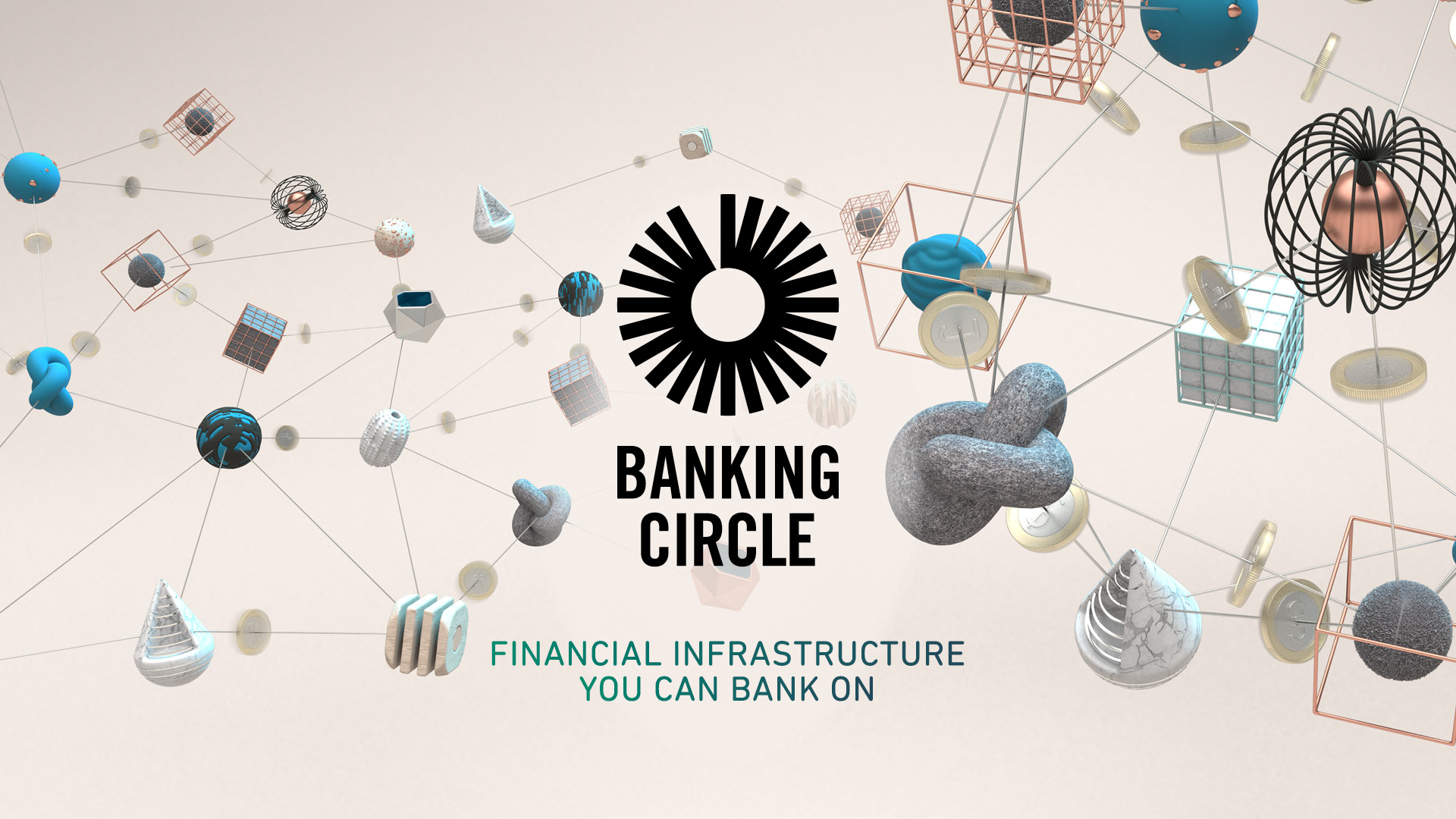
Global financial infrastructure provider, Banking Circle, has joined the P27 Nordic payment initiative as a front-runner bank in creating bulk-clearing for the Danish Krone, underlining its commitment to building a global payments infrastructure. P27 has been acknowledged as a vital initiative to address the disparate clearing systems currently operating across the Nordic region. Banking Circle sees its membership of P27 as a crucial piece in the jigsaw to remove the cost and time currently experienced in domestic and cross border payments to and from the region.
P27, named for the 27 million people it will serve in the Nordic region, is an initiative between several leading banks that all share a common goal to create the world’s first digital platform through which businesses and consumers can make real-time, domestic and cross border payments. Like Banking Circle, P27 believes payments should be faster and cheaper and that collaboration is the way this can be achieved.
Banking Circle holds an important role in the initiative, as a driving force in the creation of clearing for the Danish Krone.
Anders la Cour, co-founder and Chief Executive Officer of Banking Circle commented: “At Banking Circle we have a vision to offer a global financial infrastructure to Payments businesses and Banks serving the e-commerce marketplace that is simple, fast and low cost. We are already heavily committed to achieving this goal having secured our Banking Licence in 2019 and with sustained investment in integrating a vast network of local clearing and payments schemes."
“Our membership of P27 means we are tackling another region in the global economy. Banking Circle is already an active member in the Nordic community and a member of the Nordic Payments Council. Joining P27 was, therefore, the next natural step for us. As part of this initiative we will be able to provide our Bank and Payments business partners with the ability to offer their customers faster, easier and lower cost payments to and from the region.”
Martin Georgzén, Chief Strategy Officer and Head of Business Execution of P27 added: “P27 is an extension of the Nordic tradition of technological innovation and cooperation seen across industries including banking. We are connecting our collective resources, competence, and ambition to create a platform that really will transform payments for everyone in the region. By aligning our standards with this of the Single Euro Payments Area (SEPA), P27 will bring further harmonisation to the overall European payments landscape."
“Joining the P27 partnership, Banking Circle is demonstrating its commitment to supporting new development in the payment space that is for the good of the region as a whole. Banking Circle shares our vision for better payments provision, and we look forward to working together on the journey towards making cross border payments as easy as sending a text message.”
Today, Banking Circle delivers access to 12 local clearing schemes through a combination of direct clearing and partner banks. In 2020 it processed 6% of European B2C e-commerce payments and EUR 155bn of payments volume.









